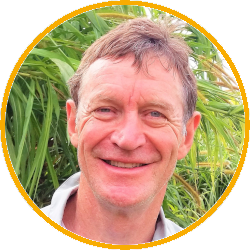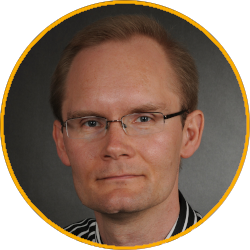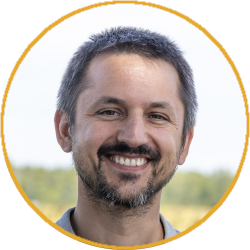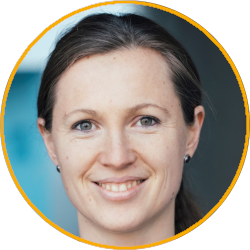 |
Prof. Dr. Simon CookProfessor |
Synergies of technologies
Prof. Dr. Simon Cook is an independent consultant who specializes in science-enabled change in agrifood systems: on-farm; within-industries and globally. Graduating from Reading University in the UK with an MSc in Pedology and soil survey and from Cambridge with a PhD in applied biology, in 1990 he moved to Australia to join CSIRO to develop wide-area applications of digital soil mapping, based on satellite and airborne remote sensing, to support farm-scale and regional decisions. From this he picked up and led the CSIRO research group on precision agriculture, which developed practical uses of digital technologies for the grains, sugar and wine industries in Australia. In 2000 he switched to global development to lead projects in Latin America, Africa and South-East Asia on behalf of the International Center of Tropical Agriculture, then for the Challenge Program of Water and Food for the CGIAR, and finally as inaugural director for the CGIAR CRP for Water, Land and Ecosystems. In 2016 he returned to Australia to establish the Centre for Digital Agriculture at Murdoch and Curtin universities. In 2022 he returned to Cali, Colombia, where he currently lives. He focusses on the endogenous changes that digital technology enables in agrifood systems.
Keynote speech on Wednesday 28 August (14h20-15h20): Is agronomy keeping up with digital agriculture? (file)
 |
Prof. Dr. Mika TarkkaProfessor |
Synergies between disciplines
Mika Tarkka received an MSc in plant physiology in 1995 and a PhD on mycorrhizal symbiosis in 2001 from the University of Helsinki, Finland. After working as a research associate for mycorrhizal-bacterial interactions at the University of Tübingen, he moved to the Helmholtz Centre for Environmental Research - UFZ in Halle, Germany. He is the Head of the Department of Soil Ecology at the UFZ in Halle and holds an adjunct professor's title at the Institute of Biology of the University of Leipzig. In addition, he is a member of the German Centre for Integrative Biodiversity Research (iDiv) Halle-Jena-Leipzig. Professor Tarkka's research focus is molecular plant microbe interactions. His particular research interests include the influence of climate change on plant beneficial microbes and their relevance for plant growth and health. He works experimentally to investigate how changes in land use and environment influence the distribution of plant associated microbes, and how the diversity of the microorganisms affects the host plant.
Keynote speech on Tuesday 27 August (14h15-15h15): Uncovering rhizosphere microbial resilience and potential to support plant growth (file)
 |
Dr. Guillaume MartinSenior researcher |
Synergies between short- and long-term goals
Guillaume Martin (42) holds a MSc in plant sciences from Wageningen University and a PhD in agricultural sciences from Toulouse University. He is a research director in the Joint Research Unit AGIR (Agroecology, Innovation, Territories) at INRAE’s Occitanie-Toulouse centre. He is also editor for Agricultural Systems. He positions his work in the field of farming systems research and focuses on pasture-based and crop-livestock farming at the farm and territory levels. Since his early career, his ambition has been threefold: (i) to develop tools enabling farmers to design sustainable and resilient systems; (ii) to develop methods informing farmers and farm consultants on the most sustainable and resilient systems and on pathways towards such systems; (iii) to explore the potential of innovative systems improving farm sustainability and resilience. His research builds on systems, interdisciplinary and participatory approaches. He has authored more than 60 articles in international scientific journals.
Keynote speech on Wednesday 28 August (8h30-9h30): Reconciling short- and long-term goals in agrifood systems: what role for agricultural sciences? (file)
 |
Prof. Dr. Johanna JacobiProfessor |
Synergies between researchers, farmers and society
Prof. Dr. Johanna Jacobi leads the Agroecological Transitions research group at ETH Zürich. She studied Geography, Biology and Social Anthropology at the university of Freiburg. For her PhD studies at the University of Bern, she conducted research together with the cooperative El Ceibo on the resilience of cocoa farms in Bolivia to climate change. After a postdoctoral project at the University of California, Berkeley, on agroforestry, she lived and worked in Bolivia for several years, doing research on food system sustainability and resilience in Latin America and Africa. Her research focuses on agroecology as a transformative science, a practice and a social movement using participatory action research and transdisciplinary methods and political ecology approaches.
Keynote speech on Tuesday 27 August (9h45-10h45): Co-creation of knowledge and transformations in agri-food systems (file)
Last update: 2024-09-05, 14:35

